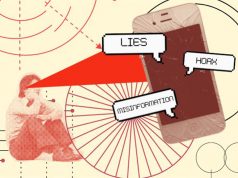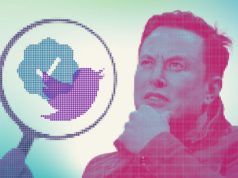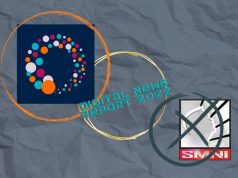An old infographic about a hierarchy of groups that spread disinformation resurfaced on an online forum.
A Reddit user posted on November 22 an infographic with the title “The Architecture of Networked Disinformation” in r/Philippines, a subreddit for topics related to the Philippines.
It came from a study by communication scholars Jonathan Ong from the University of Massachusetts and Jason Cabañes from the University of Leeds that was released in 2018.
The full title is: “Architects of Networked Disinformation: Behind the Scenes of Troll Accounts and Fake News Production in the Philippines.”
The study was funded by the British Council and the Newton Fund Grant through a global consortium of scholars researching on digital technologies in developing countries.
READ: It’s oddly journalists, not PR practitioners, who are accused of fake news
The summary and full report can be accessed here.
Disinformation is defined as “false information deliberately and often covertly spread (as by the planting of rumors) in order to influence public opinion or obscure the truth.”
It is different from misinformation which means “incorrect or misleading information.”
The infographic showed the hierarchy of the paid “architects of online disinformation.
These groups listed are:
- Chief architects of networked disinformation – elite advertising and public relations strategists
- Digital influencers
- Anonymous influencers – anonymous operators of social media pages with humorous/inspiration/pop culture content
- Key opinion leaders – celebrities and pundits with highly engaged fans and followers on social media
- Community-level fake account operators – precarious middle-class workers subcontracted by the chief architects or hired by politicians’ chief-of-staff
At the bottom of the hierarchy are the voluntary or unpaid grassroots intermediaries and the general public who believe their campaign messages.
The grassroots intermediaries include fan page moderators and volunteer political organizers.
Some Reddit users praised the infographic deemed timely.
“Magandang infographic. Sa panahon ngayon, sino pa kaya ang digital influencer ang wala sa payroll ng politiko nila?” one user said.
Others, meanwhile, were dismayed for those who belong to the “grassroots” level or the volunteers.
“Yung sa baba libre kasi volunteers. Yung sa taas millions ang transaction/deals just under that 6 figures naman, if you have influencer friends ask them,” one user said.
‘Yung ‘Grassroots Intermediaries,’ sila ‘yung, ‘Sana bayad ka dito, ang saklap naman kung t*ng* ka lang for free,’” another user said.
Recap of the study
In the summary of the study, Ong and Cabañes conducted interviews and participant observation of people whom they named as “architects of networked disinformation,” hence the title.
The have uncovered that disinformation campaigns in Philippine politics come from the advertising and PR industry and not the prominent social media influencers.
“Conveniently hidden behind the smoke-screen of prominent social media influencers who fan the flames of political divisiveness and stoke the public’s moral panics about trolling, ad and PR executives assemble their own teams of anonymous digital influencers and community-level fake account operators,” the researchers said.
They also noted that the problem is “systemic” and “deeply rooted” in the Philippine society.”
“While efforts to blacklist fake news websites, expose fake accounts, or vilify divisive digital influencers may sometimes be well-meaning, these solutions do not address the institutions and systems that professionalize and incentivize disinformation production,” the researchers said.










